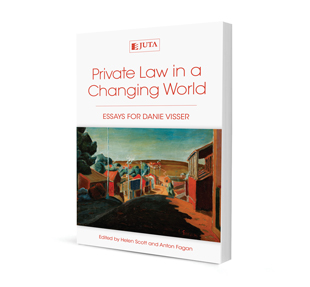
Remedies, repentance and the doctrine of election in South African contract law
Authors G Glover
ISSN: 1996-2088
Affiliations: Associate Professor, Faculty of Law, Rhodes University
Source: Acta Juridica, 2019, p. 59 – 97
Abstract
One of the main features of South Africa’s law on remedies for breach of contract is the doctrine of election. In cases where a major breach has occurred, or a cancellation clause entitles the aggrieved party to seek cancellation, the aggrieved party has an election either to cancel or to claim performance, and will be held to that binary choice. In Primat Construction CC v Nelson Mandela Bay Metropolitan Municipality the Supreme Court of Appeal recently recognised an exception to the usual election rule, specifically in cases involving repudiation. In terms of the ‘repentance principle’, a party who experiences repudiation may initially seek performance in the hope that the breaching party will repent of their breach; but if it does not, the aggrieved party may then change its mind and seek cancellation. This essay considers the history of the doctrine of election and the path to the recognition of its qualifier, the repentance principle. Thereafter, the essay poses the question whether it remains desirable for the strict doctrine of election to continue to apply in South African law, bearing in mind that a strict election can have an unduly constraining effect on the interests of the non-breaching (or ‘innocent’) party. This analysis is informed by the broader policy considerations behind the recognition of the repentance principle; the fact that other analogous exceptions to the election rule do exist; and the fact that other jurisdictions do not adopt such a strict approach to the aggrieved party’s choice of remedy.